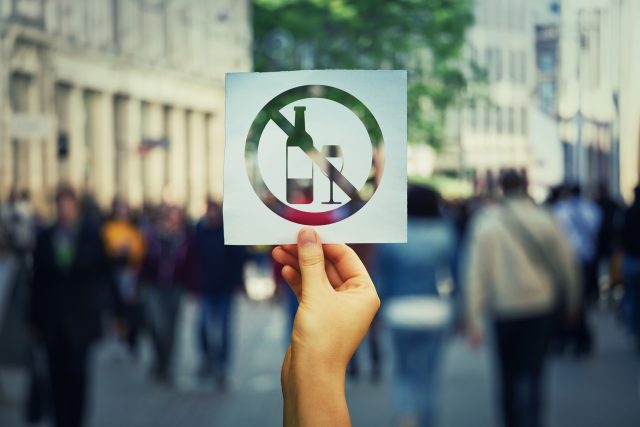This website uses cookies so that we can provide you with the best user experience possible. Cookie information is stored in your browser and performs functions such as recognising you when you return to our website and helping our team to understand which sections of the website you find most interesting and useful.
‘No robust evidence’ in favour of alcohol advertising bans, report finds
There is “remarkably little evidence” to support the view that alcohol advertising bans stop people from drinking, a new report by the Institute of Economic Affairs (IEA) has found.

The IEA free market think tank has released a new report reviewing academic literature on the effectiveness of advertising bans on alcoholic products following the Scottish Government’s decision to go “back to the drawing board” on severely limiting advertising for the sector.
Academic literature on the subject did not argue in favour of banning advertising. The IEA’s report was based in part on a Cochrane Review published in 2014, which found that “there is currently a lack of robust evidence for or against recommending the implementation of alcohol advertising restrictions”.
The new report, titled ‘Alcohol Advertising: What does the evidence show?‘, discovered that while advertising increases the sale of individual brands, it does not in fact increase total sales.
Christopher Snowdon, report author and Head of Lifestyle Economics at the IEA, said there was “remarkably little evidence” to support the claim that banning alcohol advertising would reduce the amount of alcohol-related harm in society.
“Advertising affects the market share of individual brands, but the amount of money spent on alcohol advertising has no effect on alcohol consumption overall. This is how advertising works in every other mature market, and it would be a surprise if alcohol were any different,” he said.
Three Canadian studies, based on advertising restrictions in British Columbia, Manitoba, and Saskatchewan, also found no effect on consumption, the IEA has said. And a 2010 cross-sectional study from 17 OECD countries between 1975 and 2000 similarly found that “advertising bans do not reduce alcohol demand”.
Between 1991 and 2001, advertising of alcoholic products fell by 10.8% in Britain, but alcohol consumption rose by 15.8%.
Snowdon warned that “strident claims from anti-alcohol campaigners” about the threat of advertising “should be taken with a pinch of salt”.
He said: “This evidence review found that only a few high-quality studies have looked at this issue, and the evidence is, at best, mixed. A ban on alcohol advertising would certainly not be an evidence-based policy.”
A Scottish Government consultation on advertising and promotion of alcoholic products closed on 9 March 2023, while Nicola Sturgeon was still in power. At the time, plans proposed by Holyrood to restrict advertising were met with wide criticism from the industry.
Humza Yousaf took over as First Minister on 29 March 2023, and said he backed the aim of measures “to reduce the harm caused by alcohol to children”.
However, he accepted that the proposals had caused “real concern” among the trade. Yousaf now claims he has instructed Scottish Government staff to “take these ideas back to the drawing board, work with the industry, and crucially with public health stakeholders, to agree a new set of proposals”, the details of which are yet to be revealed.

